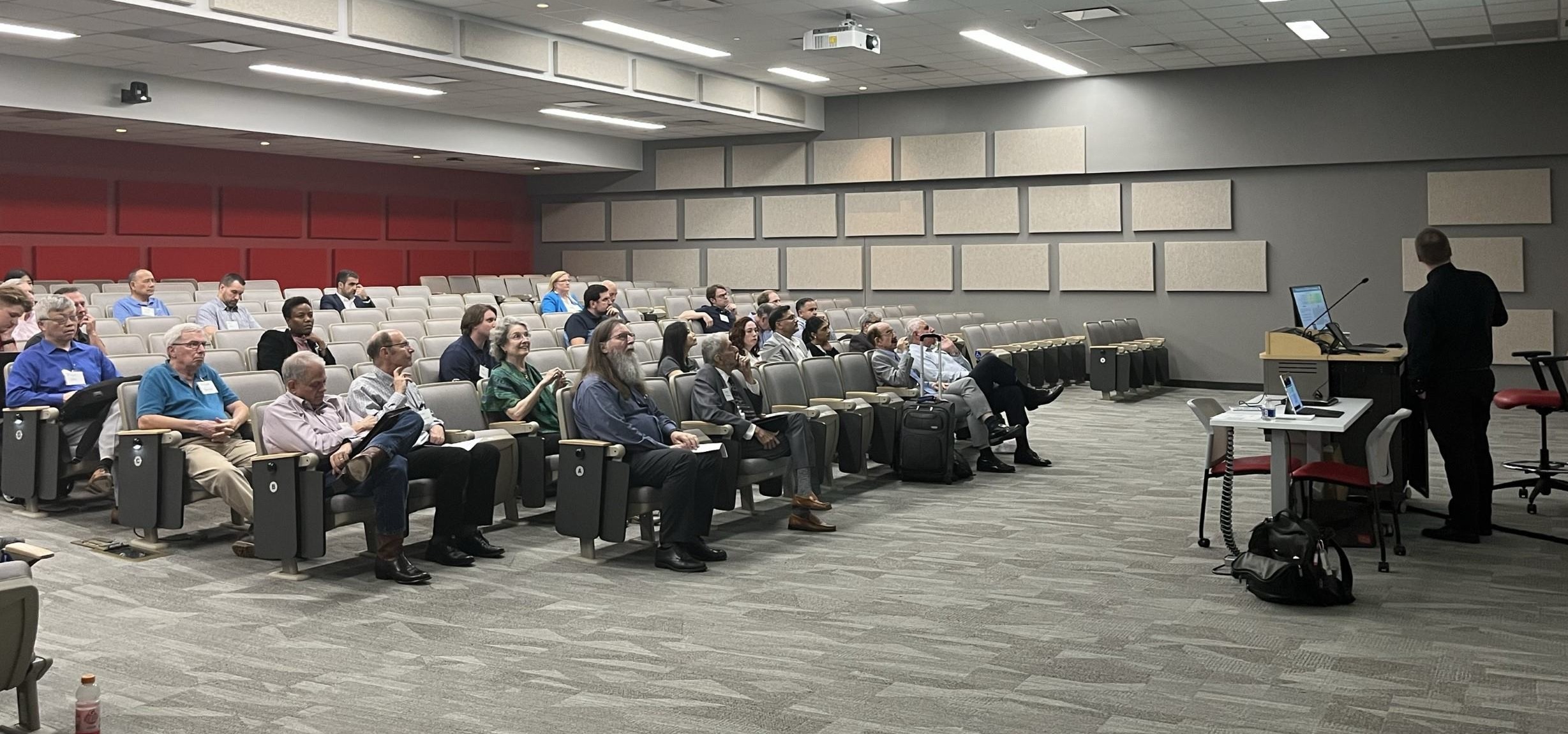On May 8th, the Texas Industrial Energy Efficiency Program (TIEEP) hosted its Spring Energy Forum at the UH Tech Bridge's Petroleum Building, bringing together energy professionals, engineers, and innovators to explore foundational tactics for improving energy efficiency in industrial settings.
The forum was held in collaboration with UH Energy and with support from the State Energy Conservation Office (SECO), reflecting TIEEP’s ongoing mission to support the oil refining and chemical sectors with scalable and sustainable energy solutions. With energy costs representing up to 30% of total operating expenses in refineries and chemical plants, the forum focused on smart, practical strategies to cut waste, reduce costs, and boost operational efficiency.
Grant Jacobson of Becht opened the forum with a detailed look at the company’s Practical Energy Assessment Kit (PEAK), a low-capital tool for identifying energy inefficiencies across refinery operations. Drawing from a recent case study, the session explained how PEAK uncovered common issues like excess steam use and poor system monitoring, and how the site used these insights to target a 22% improvement in energy program maturity within two years.
“Effective energy utilization can be practical and executed on any process unit or technology,” Jacobson noted. “Don’t get bogged down looking for the perfect AI, platform, or process. Simple systems with clear ownership and empowered plant-level engineers and operators can go a long way in improving energy performance.”
Next, Chris Barnhill, Director of Marketing at Skyven Technologies, presented Steam-Generating Heat Pumps (SGHPs) as a breakthrough technology that electrifies steam production with higher efficiency than traditional fossil-fuel or electric boilers. Barnhill highlighted the Skyven Arcturus system, which captures and upgrades waste heat into high-pressure, boiler-quality steam. This not only slashes energy consumption but also offers grid flexibility for manufacturers.
To illustrate practical benefits, Barnhill compared Arcturus directly with conventional systems, showing just how much more efficient this technology can be. “Arcturus uses up to four times less energy than gas and three times less electricity than standard electric boilers to produce the same amount of steam,” he said. “This efficiency not only offsets the typical cost gap between electricity and natural gas, but also delivers significant operational savings and emission reductions for industrial operators.”
Building on the theme of practical, scalable solutions, the next presentation focused on how data and digital tools can drive energy efficiency across complex industrial systems.
Dr. Angel Lanza, Sustainability Engineer at ExxonMobil, presented “Enterprise-wide Energy Efficiency Fleet Monitoring Tool,” highlighting a digital system that tracks and optimizes energy use across refinery units. With over 20 years of industry experience, Lanza emphasized how real-time monitoring and data integration help identify savings opportunities, benchmark performance, and reduce emissions. Case studies illustrated how enterprise-level visibility drives cost-effective, sustainable operations.
The final presentation of the day reinforced the importance of automated system monitoring. Yve Hunt, founder of Terra Viva Energy, in her presentation titled “What You Don’t See is Costing You”, emphasized the critical role of real-time monitoring in reducing energy waste and preventing costly equipment failures. Through AI-powered tools and data-driven strategies, Hunt showed how facilities can lower operational costs and emissions while improving equipment reliability.
For plant managers still unsure about adopting AI solutions, Hunt offered this perspective: “Most plants already use automated systems to keep things running smoothly, like keeping pumps at the right speed or valves in position. That covers how things work. But adding AI gives you the when, why, and what if: when a pump should turn off, why it started running unexpectedly, and what might happen if a problem is ignored.”
She continued to explain that AI can learn the unique behavior of each machine and send alerts before issues like overheating or vibrations lead to shutdowns. “Using AI shifts control from the shop floor to the strategy room,” Hunt said. “It turns raw data into clear actions, helping teams cut waste, avoid downtime, and solve problems before they show up on the utility bill or delay production.”
The 2025 TIEEP Spring Energy Forum underscored the critical role of foundational energy efficiency practices while showcasing how innovation can extend their impact. Through a dynamic blend of hands-on energy assessments, advancements in steam systems, and the integration of digital monitoring technologies, the event provided attendees with a practical roadmap for energy-intensive industries looking to drive real, sustainable performance improvements.
